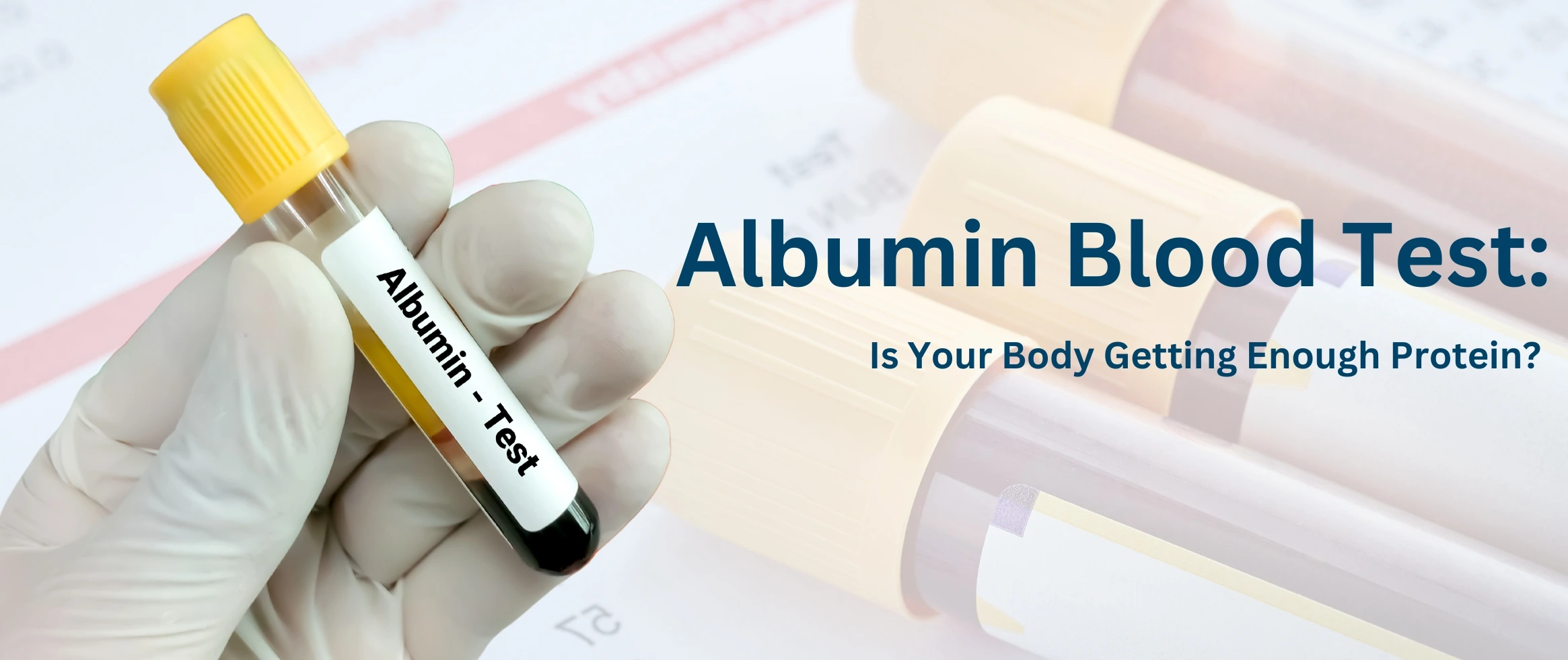When it comes to keeping track of your health, there are some tests that you should be aware of. One such test is the albumin test, which measures the amount of protein in your blood. Here we will explore what this test measures, why it's important, and how it's used by doctors to help diagnose and treat conditions!
When it comes to keeping track of your health, there are some tests that you should be aware of. One such test is the albumin test, which measures the amount of protein in your blood. Here we will explore what this test measures, why it's important, and how it's used by doctors to help diagnose and treat conditions!
What Is An Albumin Test?
The Albumin Test is a test that measures the level of albumin in your blood. Albumin is a protein that is made by your liver and is important for many functions in your body, including keeping fluid in your blood vessels and transporting nutrients throughout your body.
If you have a condition that affects your liver, such as hepatitis or cirrhosis, your liver may not be able to make enough albumin. This can cause a drop in the level of albumin in your blood, which can lead to serious health problems.
Your doctor may order an albumin test if you have symptoms of liver disease, such as fatigue, yellowing of your skin or eyes (jaundice), dark urine, or abdominal pain. An albumin test can also be used to help diagnose and monitor conditions such as kidney disease and heart failure.
Why Is Albumin Test Important?
The albumin test is used to measure the level of albumin in your blood. Albumin is a protein that is found in all body tissues, and it plays an important role in many processes in the body, such as maintaining fluid balance, transporting hormones and nutrients, and providing structure to cells.
If the level of albumin in your blood is too low, it can lead to problems such as fluid retention, swelling, and decreased ability to fight infection. Additionally, low levels of albumin may be a sign of liver disease or kidney damage.
Conversely, if the level of albumin in your blood is too high, it may be a sign of dehydration or malnutrition. High levels of albumin can also be caused by certain medications or medical conditions.
The albumin test is important because it can help to diagnose and monitor conditions that can cause changes in the level of albumin in your blood.
How To Prepare For The Test?
If your doctor orders an albumin test, it's important to be prepared so the results are accurate. Here's what you need to do:
- Fast for at least 8 hours before the test. This means no food or drinks (other than water) during that time.
- Tell your doctor about any medications you're taking, as some can affect the results of the test.
- If you have diabetes, keep your blood sugar levels under control before the test. High blood sugar can make albumin levels look lower than they actually are.
By following these simple steps, you can ensure that your albumin test results are accurate and informative.
When Should I Get Tested?
There are a few different scenarios in which you might need to get an albumin test. If you have any symptoms of liver disease, your doctor will likely want to order this test to check for liver damage. Additionally, if you have any risk factors for liver disease (such as obesity, diabetes, or a history of alcohol abuse), your doctor may recommend periodic albumin testing to check for early signs of liver damage. Finally, if you are already being treated for liver disease, your doctor will probably order regular albumin tests to monitor your condition and check for the progression of the disease.
What Do I Expect During The Albumin Test?
The Albumin test is a simple blood test that measures the level of albumin in your blood. Albumin is a protein that is found in all body tissues, including the skin and muscles. It is also present in the fluid that surrounds the body's cells.
During the test, a small sample of blood will be taken from a vein in your arm. The amount of time it takes to complete the test will depend on how many tests are being done and the type of equipment used.
After the blood is drawn, it will be sent to a lab for analysis. The results of the test will be available within a few days.
There are no special preparation requirements for this test. However, if you have had any recent blood tests, please inform your doctor or nurse so that they can take this into account when interpreting your results.
Understanding The Albumin Test Results
The albumin test results are usually reported as a percentage of the total protein in the sample. The normal range is 3.5 to 5.0 grams per decilitre (g/dL), or 35 to 50 grams per litre (g/L). Albumin levels may be affected by many factors, including diet, exercise, and stress.
If your results are outside the normal range, it does not necessarily mean that you have a medical condition. However, it is important to follow up with your healthcare provider to discuss what may be causing the abnormal result.
There are several conditions that can cause low albumin levels, including:
- Liver disease
- Kidney disease
- Malnutrition
- Malabsorption disorders
- Certain medications




 NABL approved
NABL approved  Most Trusted by
Most Trusted by  Accuracy &
Accuracy &  Widest Range
Widest Range 


















